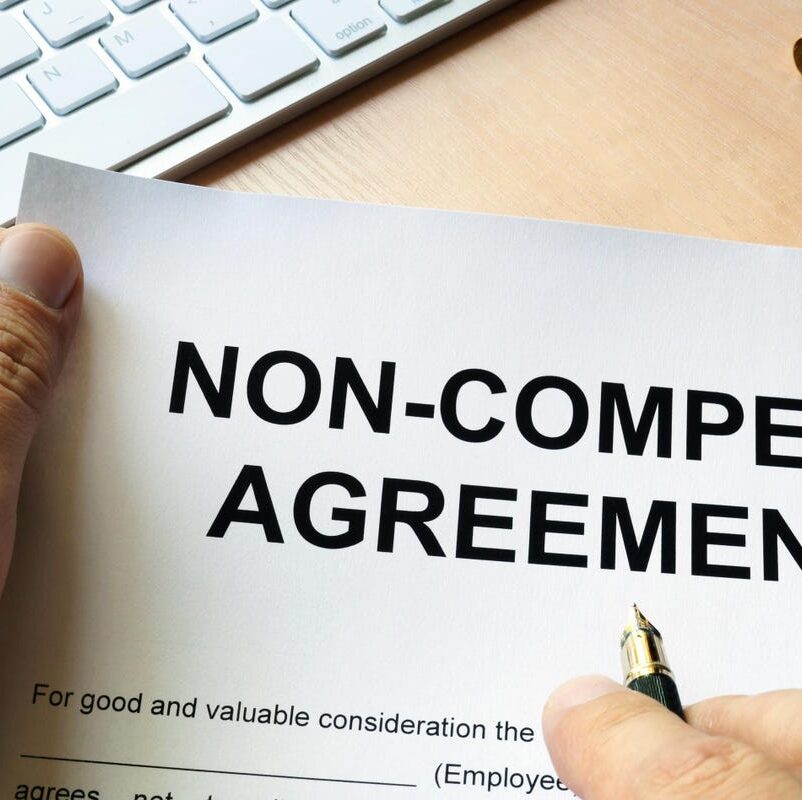
When tech executive Amy (not her actual name) accepted her dream job at an up-and-coming software company, she recognized that part of the deal would be receiving a significant portion of her compensation in the form of equity. What she didn’t realize was the impact that equity would have on her ability to seek future employment once she left the company’s toxic work environment five years later. Locked into a broad, two-year noncompete that was part of the equity agreement, she found herself having to choose between working to support her family, and potentially forfeiting what could be millions of dollars in equity upon the company’s anticipated sale. Amy shared her perspective off the record as a cautionary tale for other tech professionals.
Tech companies regularly pay their employees in the form of stock for multiple reasons: cash-poor startups can attract talent with the potential of the stock multiplying in value in the future, big tech views equity as a retention tool when tied to multi-year vesting plans, and companies of all sizes desire employees to be committed enough to the firm to “put their money where their mouth is” by linking company performance to employees’ personal financial results.
Yet that equity often comes with strings attached. Vesting periods of several years are common, making the stock revocable until that time passes. Employees who leave the company through layoffs or for greener pastures before that date leave with less or nothing. Shares of private companies, often illiquid, commonly cannot be sold until a significant event such as the company being bought or going public. And when stock is granted, employees generally need to sign a non-compete agreement in exchange for that compensation. While an estimated 38% of American workers bound by at least one noncompete in their careers, those in the professional, scientific, and technical industry have the highest incidence.
Much has been made of the Federal Trade Commission’s proposed rule to ban noncompete clauses. In a January 5th press release announcing the proposal, the Commission described non-competes as a “widespread and often exploitative practice that suppresses wages, hampers innovation, and blocks entrepreneurs from starting new businesses.” It further stated that “the evidence shows that noncompete clauses also hinder innovation and business dynamism in multiple ways—from preventing would-be entrepreneurs from forming competing businesses, to inhibiting workers from bringing innovative ideas to new companies.” The U.S. Chamber of Commerce disagrees, and announced its intent to sue the FTC sue the FTC if the proposed rule proceeds. (Neither the FTC nor U.S. Chamber of Commerce responded to a request for comment for this column).
So what are some real impacts of non-competes on innovation and entrepreneurship? First asserted by law professor Ronald Gilson in 1999, the success of Silicon Valley as the premier region for incubation of tech and innovation has been attributed in part to California’s enforcement of an 1872 law that prevents non-competes. While Boston, Washington, D.C., and Seattle have also given birth to tech giants, none compare to the volume and variety of innovation for which Silicon Valley is known, and all are located in jurisdictions that enforce noncompete clauses.
Cloud Capital co-founders Sean Sternbach, Hart Williams, and Taylor Heininger provide financial … [+]
Cloud Capital is a financial advisory firm focused on the tech sector in Seattle, home to Amazon, Microsoft, and other big tech companies. Co-founder and Chief Investment Officer Sean Sternbach asserts that what is best for Seattle and the state of Washington is something akin to California’s non-enforceable non-competes. “Employees who are working deep in the weeds of new technologies don’t feel they have the ability to leave or start their own companies because of non-competes that could be enforced. And that’s unfortunate, because they have innovative ideas that could grow into the next Amazon and Microsoft and other huge economic contributors. We want that talent to stay local, particularly in a post-covid world where people can work remotely from anywhere.” Co-founder and CEO Hart Williams adds, “anytime you have a group of entrepreneurial-minded technologists and they’re chasing an idea, if they’re able to work towards that idea with a free mindset, they’re going to work fast and efficiently towards the solution. But if they have to sidestep an idea around what they worked on at previous employers, even if the previous employer is not necessarily chasing the same idea, it can be inhibitive.”
Investment professional and serial entrepreneur Joe Swiader of Wet Earth Partners
Investment professional and serial entrepreneur Joe Swiader of Wet Earth Partners
has worked in portfolio management for over thirty years. As an investor in companies in biotechnology, medical devices, and computational science, Swiader supports non-competes for tech employees. “If you allow people to come into a company, then leave it and compete against it, there’s a disincentive for disclosing information. That limits what they can contribute, which stifles innovation.” He adds, “the whole idea of capitalism is the ownership of property, the free exercise of rights of ownership, and the protection of those rights by the government. So if the government is not going to help you protect what you own, there will be less capital coming to your company. Markets will react to that. Less capital means less money for innovation.”
Swiader adds, “I think the more you can protect innovation, the more innovation you’re going to have. Innovation has to be protected for it to continue.” He observe, “to attract capital, you need to develop and commercialize ideas. Capital only comes to something you own. If you don’t own an idea, then the terms of that capital will be very different. Innovation and entrepreneurship are the creation of new ideas, the ownership and control of those ideas, and the ability to attract capital to those ideas.”
Joy Einstein is a shareholder in the labor and employment group at law firm Shulman Rogers.
Joy Einstein is a shareholder in the labor and employment group at law firm Shulman Rogers who litigates restrictive covenant cases. She sees an increasing trend of tech companies deploying non-competes, in employment agreements or freestanding restrictive covenants, and also in equity or stock agreements. She feels that in many cases, these non-competes are unnecessary. “Most companies can achieve what they need in terms of protection of their trade secrets and other proprietary information and goodwill through either strongly worded non-disclosure or non-solicitation agreements,” Einstein said. “If you are a company and you are afraid that somebody is going to go out and start competing against you, then the answer is to make a better product, be a better company, a better innovator and compete with them that way. Don’t just rely on a document that would prevent them from competing with you. We see that companies are forced to innovate in order to maintain their customer base, and I think that’s the far better path than using a paper to try to prevent somebody from competing.”
Swiader disagrees. “Entrepreneurs get punched in the face every day,” he said. “It’s not easy to start new companies and develop and commercialize something brand new. If a team member can compete against you tomorrow, there will be a hesitancy to share sensitive information and realize the potential of your team. There is a price to pay for removing non-competes and entrepreneurs will act to protect the competitive position of their property. Its intrinsic to the capitalist system.”
The public comment period for the proposed rule is open until March 20, 2023.
The conversation has been edited and condensed for clarity. Check out my other columns here.




